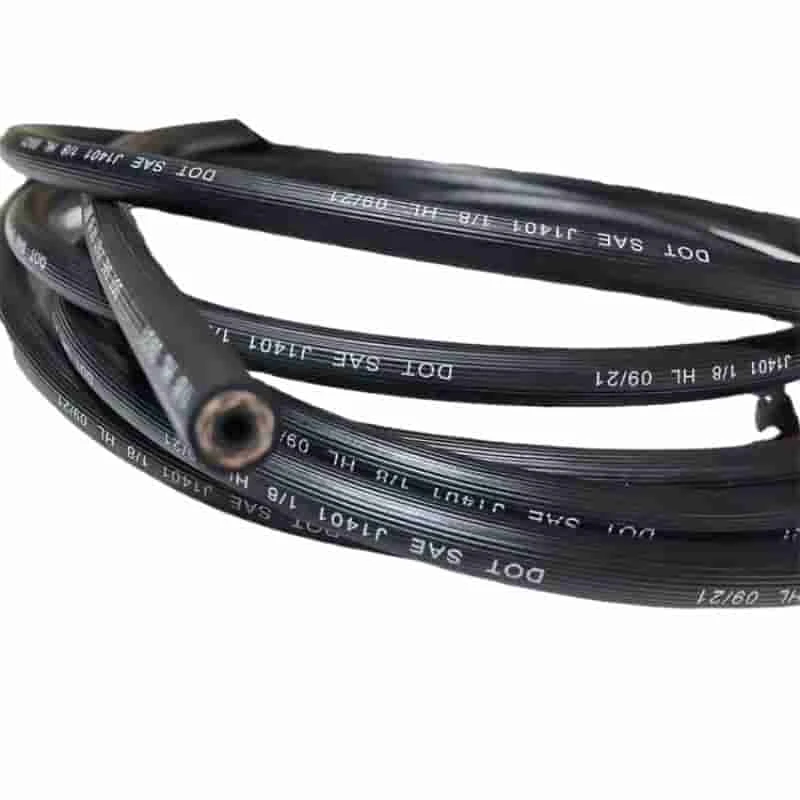e85 rated fuel line
Novemba . 24, 2024 03:49 Back to list
e85 rated fuel line
Understanding E85 Rated Fuel Lines A Comprehensive Guide
In the evolving landscape of automotive fuels, E85 has gained significant traction as a renewable alternative to traditional gasoline. E85 is a blend of 85% ethanol and 15% gasoline, recognized for its potential to reduce greenhouse gas emissions and reliance on fossil fuels. However, to harness the benefits of E85, it is crucial to understand the components involved in its use, particularly the importance of E85 rated fuel lines.
What Are E85 Rated Fuel Lines?
E85 rated fuel lines are specially designed tubes that transport fuel from the gas tank to the engine in vehicles that are compatible with E85 fuel. Unlike standard fuel lines, E85 rated lines are engineered to withstand the unique properties of ethanol-blended fuels. Ethanol is more corrosive than gasoline and has a different chemical makeup, which can affect the materials used in traditional fuel lines. Thus, using appropriate fuel lines is essential for the longevity and safety of a vehicle designed to run on E85.
Importance of Using E85 Rated Fuel Lines
1. Corrosion Resistance Ethanol has a higher affinity for water than gasoline, which means it can absorb moisture from the atmosphere. This moisture can lead to corrosion in standard non-E85 rated fuel lines and other system components. E85 rated lines, usually made from materials like fluorocarbon, are designed to resist this corrosive effect, ensuring a longer service life.
2. Temperature Stability E85 fuel can operate at higher temperatures compared to traditional gasoline. Fuel lines that are not rated for E85 may fail under these conditions, leading to leaks and potential hazards. E85 rated lines are constructed to maintain integrity in these elevated temperatures, providing an added layer of safety.
3. Enhanced Performance Vehicles that are optimized for E85 often require modifications to various systems, including fuel delivery. E85 rated fuel lines can enhance engine performance by facilitating a steady and reliable flow of fuel, which is necessary for efficient combustion and horsepower generation.
4. Compatibility Not all vehicles are designed to run on E85; however, many flex-fuel vehicles (FFVs) are engineered to handle both E85 and regular gasoline. These vehicles typically come equipped with E85 rated fuel lines. For those considering a conversion or retrofit to use E85, it is crucial to ensure that all components, including fuel lines, are compatible with ethanol.
e85 rated fuel line

Choosing the Right E85 Rated Fuel Lines
When selecting E85 rated fuel lines, the following factors should be considered
- Material Composition Look for fuel lines made from high-grade materials such as PTFE (Polytetrafluoroethylene) or fluorocarbon. These materials provide excellent chemical resistance and durability against the corrosive nature of ethanol.
- Diameter and Length Ensure that the fuel lines fit your vehicle's specific requirements. The diameter and length of the lines can impact fuel flow and engine performance, so precise measurements are essential.
- Manufacturer Reputation Opt for products from reputable manufacturers known for their quality and adherence to safety standards. This ensures you are getting reliable fuel lines that will perform well under the pressures and temperatures associated with E85.
- Installation Proper installation is crucial for the performance of E85 rated fuel lines. Consider professional installation if you are not experienced with automotive repairs to avoid leaks and potential damage.
Conclusion
As the automotive industry continues to shift towards more sustainable fuel sources, understanding the components involved in using E85 fuel becomes increasingly important. E85 rated fuel lines are a crucial element of this transition, providing safety, reliability, and performance. By investing in quality E85 rated fuel lines, drivers can enjoy the benefits of E85 while ensuring their vehicles remain in optimal condition. Whether you are a seasoned enthusiast or a casual driver, making informed choices about your fuel system will help contribute to a cleaner and more sustainable future in transportation.
